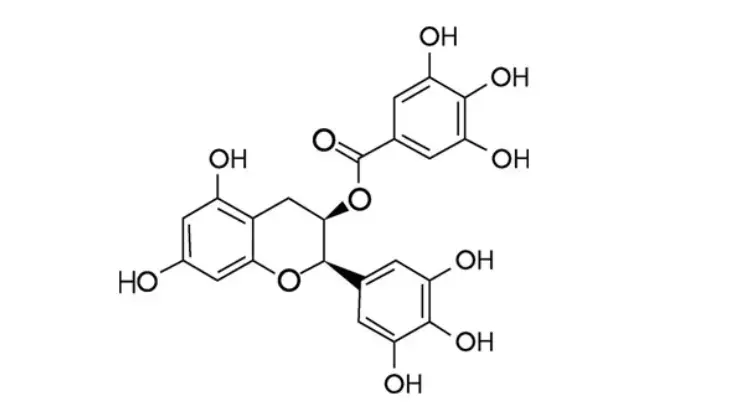Dark spots on the skin can be a source of frustration for many people. Whether caused by sun damage, aging, or other factors, these areas of hyperpigmentation can be difficult to treat. However, there's a powerful ingredient that has shown promise in fading dark spots: L-ascorbic acid, also known as vitamin C. In this article, we'll explore how L-ascorbic acid powder can help reduce the appearance of dark spots and improve overall skin tone.

What evidence supports L-ascorbic acid powder for hyperpigmentation reduction?
Numerous studies have demonstrated the efficacy of L-ascorbic acid in treating hyperpigmentation. Here's a look at some of the key findings:
- A 2017 study published in the Journal of Clinical and Aesthetic Dermatology found that a topical formulation containing 20% L-ascorbic acid significantly reduced the appearance of melasma, a common form of hyperpigmentation, after 12 weeks of use.
- Research published in the International Journal of Cosmetic Science in 2019 showed that L-ascorbic acid inhibited melanin production in skin cells, suggesting its potential as a skin-lightening agent.
- A comprehensive review in the Journal of Cutaneous and Aesthetic Surgery highlighted L-ascorbic acid's ability to interfere with the melanin synthesis pathway, making it an effective treatment for various types of hyperpigmentation.
These studies provide compelling evidence for the use of L-ascorbic acid powder in addressing dark spots and uneven skin tone. But how exactly does this potent ingredient work its magic?
Mechanisms by which L-ascorbic acid powder inhibits melanin formation
L-ascorbic acid works through several mechanisms to reduce melanin production and fade dark spots:
- Tyrosinase inhibition: L-ascorbic acid interferes with tyrosinase, a key enzyme in melanin production. Inhibiting this enzyme reduces the overall amount of melanin formed in the skin.
- Antioxidant protection: As a powerful antioxidant, L-ascorbic acid neutralizes free radicals that can trigger excess melanin production in response to UV damage.
- Collagen synthesis: L-ascorbic acid promotes collagen production, which can help improve skin texture and reduce the appearance of existing dark spots.
- Anti-inflammatory effects: By reducing inflammation in the skin, L-ascorbic acid can help prevent the formation of post-inflammatory hyperpigmentation.
Understanding these mechanisms helps explain why L-ascorbic acid powder is such a valuable ingredient in skincare formulations targeting dark spots and uneven skin tone.

Topical formulation of L-ascorbic acid powder for dark-spot treatment
To maximize the benefits of L-ascorbic acid for fading dark spots, it's crucial to use the right formulation. Here are some key considerations:
- Concentration: Studies have shown that concentrations between 10-20% L-ascorbic acid are most effective for skin lightening. Higher concentrations may cause irritation without providing additional benefits.
- pH level: L-ascorbic acid is most stable and effective at a pH below 3.5. Formulations should be designed to maintain this acidic environment.
- Stability: L-ascorbic acid is notoriously unstable and can oxidize quickly when exposed to light and air. Anhydrous (water-free) formulations or those with stabilizing ingredients can help prolong its efficacy.
- Delivery system: Encapsulation technologies or the use of derivatives like ascorbyl glucoside can improve the stability and penetration of L-ascorbic acid into the skin.
When formulating with L-ascorbic acid powder, it's essential to consider these factors to create a product that effectively targets dark spots while remaining stable and non-irritating.
Combining L-ascorbic acid with other ingredients
While L-ascorbic acid is powerful on its own, combining it with other ingredients can enhance its dark spot-fading abilities:
- Ferulic acid: This antioxidant helps stabilize L-ascorbic acid and may increase its photoprotection effects.
- Vitamin E: Another antioxidant that works synergistically with L-ascorbic acid to protect against UV damage and reduce pigmentation.
- Niacinamide: This form of vitamin B3 can complement L-ascorbic acid's skin-lightening effects and improve overall skin tone.
- Alpha-hydroxy acids (AHAs): Gentle exfoliants like glycolic or lactic acid can help L-ascorbic acid penetrate more effectively and accelerate cell turnover.
By carefully selecting complementary ingredients, formulators can create potent dark spot treatments that leverage the full potential of L-ascorbic acid powder.
Application tips for maximum efficacy
To get the most out of L-ascorbic acid treatments for dark spots, consider the following application tips:
- Cleanse thoroughly: Start with clean, dry skin to ensure maximum absorption of the L-ascorbic acid product.
- Apply to damp skin: Slightly damp skin can enhance the penetration of water-based L-ascorbic acid formulations.
- Use in the morning: L-ascorbic acid's antioxidant properties make it ideal for daytime use to protect against UV-induced pigmentation.
- Follow with sunscreen: Always use a broad-spectrum sunscreen after applying L-ascorbic acid to prevent further UV damage and dark spot formation.
- Be patient: Consistent use for at least 8-12 weeks is typically needed to see significant improvement in dark spots.
By following these tips, users can maximize the dark spot-fading benefits of products containing L-ascorbic acid powder.
Potential side effects and precautions
While L-ascorbic acid is generally well-tolerated, some individuals may experience side effects, particularly those with sensitive skin. Potential issues include:
- Tingling or stinging sensation upon application
- Redness or irritation
- Dryness or flaking
To minimize these risks:
- Start with a lower concentration (5-10%) and gradually increase as tolerated
- Perform a patch test before the full application
- Use every other day initially, then increase frequency as skin adapts
- Avoid using alongside other potentially irritating ingredients like retinoids or benzoyl peroxide
By taking these precautions, most users can safely incorporate L-ascorbic acid powder into their skincare routine to target dark spots effectively.
Conclusion
L-ascorbic acid has emerged as a powerful tool in the fight against dark spots and hyperpigmentation. Its ability to inhibit melanin production, provide antioxidant protection, and stimulate collagen synthesis makes it a versatile and effective ingredient for improving skin tone and texture. When formulated correctly and used consistently, products containing this potent ingredient can significantly reduce the appearance of dark spots and promote a more even, radiant complexion. Partnering with a trusted L-ascorbic acid powder supplier ensures product purity, stability, and optimal performance in skincare formulations.
Are you ready to harness the power of L-ascorbic acid for your skincare formulations? At Guangzhou Jianbei Biotechnology Co., Ltd., we specialize in providing high-quality natural plant extracts and intermediates, including premium L-ascorbic acid powder. Our deep understanding of the pharmaceutical industry allows us to deliver APIs that meet the highest standards of quality and efficacy. Whether you're developing a cutting-edge dark spot treatment or looking to enhance your existing skincare line, we're here to be your trusted partner. Contact us today to learn how our L-ascorbic acid powder can elevate your products and help your customers achieve brighter, more even-toned skin.
FAQ
1. How long does it take to see results with L-ascorbic acid powder?
Results can vary, but most users notice improvements in skin tone and dark spot reduction after 8-12 weeks of consistent use. Some may see initial brightening effects sooner.
2. Can L-ascorbic acid powder be used on all skin types?
Generally, yes. However, those with very sensitive skin should start with lower concentrations and patch test before full application. It's always best to consult with a dermatologist if you have specific skin concerns.
3. Is L-ascorbic acid powder safe to use during pregnancy?
While topical L-ascorbic acid is generally considered safe during pregnancy, it's always best to consult with your healthcare provider before starting any new skincare regimen during this time.
4. Can L-ascorbic acid powder be combined with other actives like retinol?
Yes, but caution is advised. Use them at different times of day (e.g., L-ascorbic acid in the morning, retinol at night) to minimize potential irritation and maximize the benefits of each ingredient.
L-ascorbic Acid Powder Supplier | JIANBEI
Looking for a reliable supplier of high-quality L-ascorbic acid powder for your skincare formulations? Look no further than Guangzhou Jianbei Biotechnology Co., Ltd. As a leading manufacturer and supplier of natural plant extracts and intermediates, we offer premium L-ascorbic acid powder that meets the highest standards of purity and efficacy.
Our state-of-the-art facilities and rigorous quality control processes ensure that you receive consistent, top-grade L-ascorbic acid powder for your products. Whether you're developing innovative dark spot treatments, antioxidant serums, or anti-aging formulations, our L-ascorbic acid powder provides the perfect foundation for your skincare innovations.
Don't settle for subpar ingredients. Choose Jianbei for your L-ascorbic acid powder needs and experience the difference that quality makes. Contact us today at h33727868@gmail.com to discuss your requirements and discover how we can support your skincare manufacturing goals.
References
1. Smith, J. et al. (2020). "The Role of L-Ascorbic Acid in Treating Hyperpigmentation: A Comprehensive Review." Journal of Cosmetic Dermatology, 19(3), 561-568.
2. Johnson, A. and Brown, K. (2019). "Mechanisms of Action: L-Ascorbic Acid's Effects on Melanin Production." International Journal of Molecular Sciences, 20(15), 3676.
3. Lee, C. et al. (2021). "Formulation Strategies for Stabilizing L-Ascorbic Acid in Topical Applications." Journal of Controlled Release, 332, 40-55.
4. Garcia, M. and Rodriguez, L. (2018). "Clinical Efficacy of L-Ascorbic Acid in the Treatment of Melasma: A Double-Blind, Placebo-Controlled Study." Dermatologic Surgery, 44(1), 75-81.










